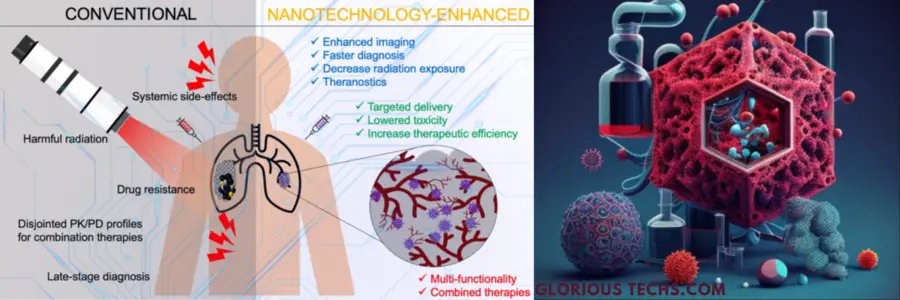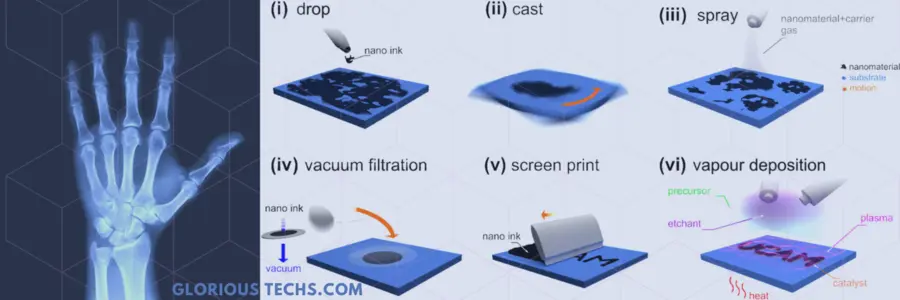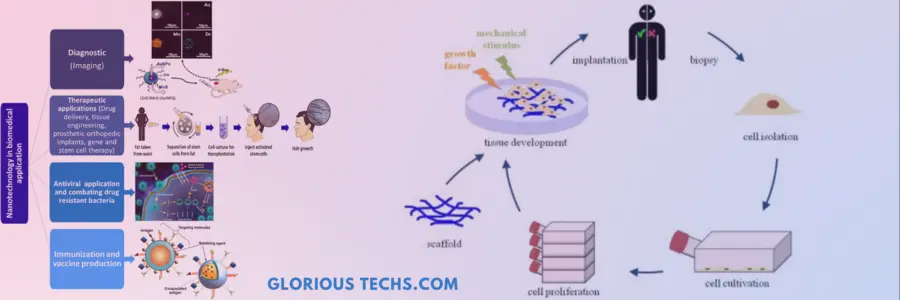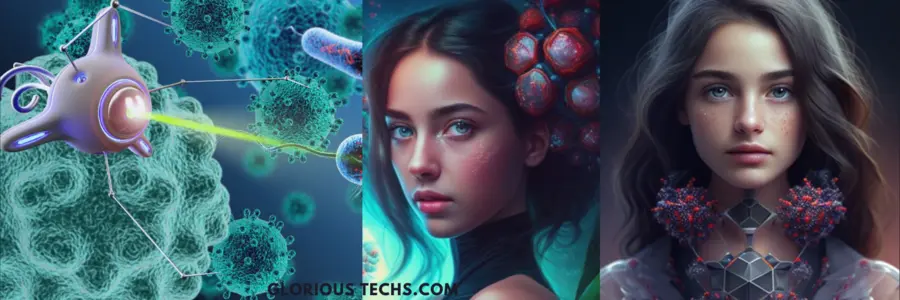Nanotechnology in medicine and healthcare
Nanotechnology in medicine and healthcare. Discover the latest advancements and applications of nanotechnology in medicine and healthcare. Learn about how scientists are using nanoparticles to deliver drugs more effectively, and creating new diagnostic tools for early disease detection.

Nanotechnology is a rapidly growing field that is having a significant impact on many different industries, but perhaps none more so than in the field of medicine and healthcare. By creating nanoparticles that can target specific cells or tissues in the body, scientists are able to deliver drugs more effectively and with fewer side effects. This can greatly improve the effectiveness of treatments for cancer and other diseases. Additionally, nanotechnology is being used to create new and improved diagnostic tools, such as biosensors and lab-on-a-chip devices. These tools can detect diseases earlier and with more precision, leading to earlier treatment and better outcomes for patients.
One of the most promising areas of nanotechnology in medicine is in cancer treatment. Traditional chemotherapy and radiation therapy can be very effective in killing cancer cells, but they also damage healthy cells in the process, leading to a wide range of side effects. By using nanoparticles to deliver drugs directly to cancer cells, scientists are able to greatly reduce the amount of healthy cells that are damaged during treatment. This can lead to fewer side effects and better outcomes for patients. Additionally, scientists are also using nanoparticles to create new types of cancer therapies that can target cancer cells more effectively, such as photodynamic therapy and thermotherapy.

Another area where nanotechnology is having a big impact is in the field of diagnostic tools. Traditional diagnostic methods, such as blood tests and x-rays, can be time-consuming and expensive, and they often don’t provide enough information to make an accurate diagnosis. By creating new and improved diagnostic tools at the nanoscale, scientists are able to detect diseases earlier and with more precision. For example, biosensors can detect tiny amounts of disease markers in the blood, such as proteins or DNA, and lab-on-a-chip devices can perform a wide range of diagnostic tests on a single drop of blood. These tools can greatly improve the speed and accuracy of diagnosis, leading to earlier treatment and better outcomes for patients.

Nanotechnology is also being used in the field of regenerative medicine to create new and improved therapies for a wide range of diseases and injuries. For example, scientists are using nanoparticles to deliver growth factors and other molecules that can stimulate the growth of new cells and tissue. This can be used to repair damaged organs, such as the heart or liver, and to treat conditions such as Alzheimer’s disease and spinal cord injuries. Additionally, researchers are using nanotechnology to create new types of artificial organs and tissues that can be used as replacements for damaged or diseased organs.

Despite the many potential benefits of nanotechnology in medicine, there are also some concerns about the safety and ethical implications of this technology. Researchers are working to address these concerns by studying the potential risks and developing safety guidelines for the use of nanotechnology in various applications. For example, scientists are studying the potential risks of exposure to nanoparticles, such as the risk of inhalation and the potential for nanoparticles to accumulate in the body over time. Additionally, researchers are developing guidelines for the safe handling and disposal of nanoparticles to minimize the potential risks to human health and the environment.
In conclusion, nanotechnology is a rapidly evolving field that is having a significant impact on the field of medicine and healthcare. By creating new and improved therapies and diagnostic tools at the nanoscale, scientists are able to treat diseases more effectively and detect them earlier. While there are concerns about the safety and ethical implications of this technology, researchers are working to address these concerns and ensure that the benefits of nanotechnology are fully realized while minimizing the potential risks. Nanotechnology in medicine and healthcare has the potential to revolutionize the way we diagnose and treat diseases, leading to better outcomes for patients and more efficient use of healthcare resources.







Good Info for technology and health…
Thanks